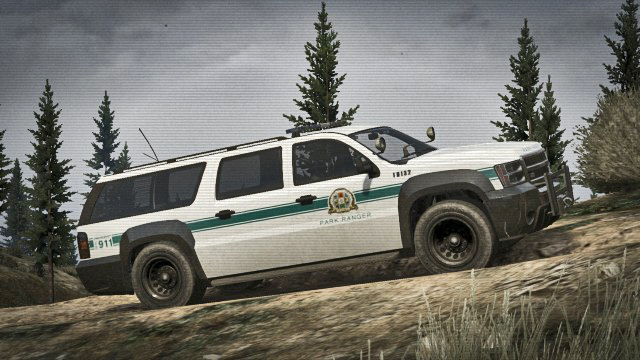Embarking on a career as a park ranger means committing to the stewardship of our nation’s natural beauty and heritage. Aspiring park rangers must meet a range of qualifications to ensure they’re ready for the multifaceted challenges of the job.
From educational credentials to physical fitness, the path to donning the ranger uniform is a blend of preparation and dedication. If you’re passionate about conservation and eager to serve in the great outdoors, understanding these requirements is your first step towards a fulfilling career.
Understanding the Fundamental Requirements
Before you set your sights on the trails and vistas as a ranger, you must meet the fundamental requirements. These often include completing at least 60 semester hours of college coursework that is relevant to the role, with a focus on natural resource protection and management. This educational foundation equips you with the knowledge to effectively preserve park environments and engage with the public on conservation issues.
• Essential Educational Background
A strong educational foundation is crucial for park rangers. Typically, this includes college coursework in fields such as natural resource management, parks and recreation, outdoor recreation, and resource management from an accredited college or university. These programs provide the theoretical knowledge and practical skills necessary to manage and protect natural parklands effectively.
• Physical and Age Prerequisites
Physical readiness and meeting age requirements are essential for park rangers, who are often tasked with rigorous outdoor activities. The job can involve hiking long distances, performing search and rescue operations, and managing conservation projects—all of which demand good physical conditioning. Additionally, most agencies have minimum and maximum age limits for applicants, ensuring candidates possess the vitality and maturity needed for the role.
• Citizenship and Background Checks
As part of the hiring process, candidates must typically be U.S. citizens and undergo thorough background checks. These checks help ensure the integrity and trustworthiness of individuals who will be tasked with safeguarding natural resources and interacting with the public. Agencies look for candidates with a history of responsible and ethical behavior, which is indicative of their potential performance as rangers.
• Importance of a Clean Criminal Record
Maintaining a clean criminal record is paramount for aspiring park rangers. A history of felonies or serious misdemeanors can disqualify you from consideration, as rangers are entrusted with significant responsibilities, including law enforcement duties and public interaction. A clean record reflects reliability and a commitment to upholding the laws that protect our parks and visitors.

Specialized Training and Certifications
Specialized training and certifications are integral to becoming a park ranger. In many state parks, a rigorous background investigation precedes the employment process. Prospective law enforcement officers must complete academy training, which includes both basic training and specific training programs tailored to the unique demands of park service.
• First Aid and Emergency Response Certifications
Park rangers are often the first responders in emergencies, necessitating certifications in first aid and emergency response. Through such training, rangers are prepared to handle a range of situations, from minor injuries to life-threatening emergencies, ensuring the safety of visitors across national recreation areas and park and recreation facilities.
• Required Skills for Specific Park Environments
Park rangers working in specialized areas, such as nature centers, must possess a unique set of skills tailored to those environments. This expertise allows rangers to effectively manage specific ecosystems and provide educational experiences that highlight the importance of conservation and natural history.
Navigating the Hiring Process
The application process for park ranger positions requires attention to detail and an understanding of the specific requirements of the role. Make sure to present your qualifications and experience clearly, aligning them with the job description to improve your chances of success.
• Identifying Job Openings Across Various Locations
Park rangers must be willing to serve in a variety of roles, from public safety to environmental education. Staying informed about job openings across various locations can help you find a position that aligns with your skills and interests, whether you’re aiming to work in remote wilderness areas or bustling urban parks.
• Specific Considerations for NPS Law Enforcement Positions
For those eyeing law enforcement positions within the National Park Service (NPS), additional qualifications may apply. As law enforcement officers, rangers are tasked with upholding park regulations, which requires a combination of physical ability, legal knowledge, and conflict resolution skills.
Additional Qualifications for Higher-Level Park Ranger Roles
Ascending to higher-level park ranger positions often requires further qualifications. You might need additional education, such as a bachelor’s or master’s degree in a relevant field. Leadership experience is also pivotal; having a record of successfully managing teams or projects can set you apart. Additionally, a valid driver’s license is essential, and for certain roles, you may need to be a permanent resident or citizen. Specialized training in areas like wildfire management or search and rescue could also be beneficial.
Continuous Professional Development Options
Your growth as a park ranger doesn’t stop once you’re hired. Engaging in continuous professional development is key for advancing your career. This could include attending workshops and conferences related to environmental conservation, taking additional courses in natural resource management, or even pursuing a higher degree. Staying abreast of the latest trends in park management and conservation techniques will ensure you’re ready for the challenges of higher-level roles.
Overcoming Potential Hiring Barriers
Understanding and navigating the hiring process is crucial. For instance, having a background in criminal justice can be a significant asset, particularly if you’re aiming for law enforcement roles within the park services. It equips you with a foundational understanding of the laws you’ll be enforcing and the justice system as a whole.
Addressing Common Disqualifiers in the Application Process
When you’re aiming to become a state park ranger, meeting the minimum qualifications is just the start. Your application must be free of common disqualifiers like a history of serious disciplinary actions in past employment. Be transparent about your work history and be prepared to discuss any potential issues. State park ranger roles are competitive, and recruiters will favor applicants with clean records and consistent employment histories.
Driving Record and Drug Use Policies
Your driving record matters. A history of DUIs or serious traffic violations could disqualify you from becoming a park ranger. Similarly, adherence to drug use policies is non-negotiable. Park services require rangers to be clear-headed and responsible; thus, a clean drug test is often a prerequisite for employment. Stay informed about the specific policies of the park you’re applying to and ensure your record aligns with their standards.
Handling Past Employment and Other Unique Disqualifiers
Potential disqualifiers extend beyond your driving record and drug use. Past employment challenges, like gaps in your resume or a history of short-term jobs, might raise red flags. Be ready to explain these situations honestly and demonstrate what you’ve learned from them. For state park ranger positions, the minimum qualifications include a solid track record of reliability and commitment, qualities that are essential for the stewardship of our natural resources.

Embracing Diversity Within Park Services
Today, park services strive to reflect the diversity of our nation. Embracing different backgrounds and perspectives enriches the workforce and enhances the visitor experience.
Initiatives Promoting Inclusivity in the Workforce
Inclusivity initiatives are paving the way for a more diverse park service workforce. These programs focus on recruiting individuals from underrepresented groups and providing them with the support they need to succeed. From internships to mentorship opportunities, these initiatives are crucial in building a park service that truly represents the diversity of our society.
Preparing for a Rewarding Career as a Park Ranger
Embarking on a park ranger career is both rewarding and demanding. Your passion for the outdoors and conservation will be at the core of your daily work.
Tips for Aspiring Park Rangers
If your dream is to work in state parks, start by gaining relevant experience. Volunteer at local parks, participate in conservation projects, and network with current park rangers. These steps will not only build your resume but also give you a taste of the job’s demands and rewards.
Volunteering and Internship Strategies
Volunteering and internships are invaluable for breaking into the park service field. They provide hands-on experience and the chance to learn directly from seasoned professionals. Look for opportunities in areas of interest, such as wildlife management or environmental education, to help hone your skills and increase your chances of being hired.
Safeguarding Our National Treasures
Park rangers play a critical role in protecting our nation’s natural and cultural heritage for future generations.
The Role of Park Rangers in Conservation and Protection
As a park ranger, you’re on the front lines of conservation and protection. Your duties range from enforcing regulations to preserving delicate ecosystems. You’ll work to prevent poaching, monitor endangered species, and help maintain the integrity of the landscapes under your watch. Your actions directly contribute to the ongoing health and vitality of our national treasures.
The Intersection of Law Enforcement and Environmental Stewardship
Law enforcement within the park services is a unique blend of upholding the law and environmental stewardship. You’ll enforce regulations that protect wildlife and habitats while educating visitors about responsible recreation. This role requires a balance of authority and diplomacy, with a deep understanding of the ecosystems you’re protecting. Your work ensures that park laws are respected and that the natural environment is preserved for everyone’s enjoyment.
The Final Step: Park Ranger Qualifications
Becoming a steward of our national parks and recreational areas is a noble pursuit, combining a love for the outdoors with the dedication to preserve it. To embark on this journey, you must have a solid educational foundation, often in fields related to conservation, ecology, or resource management. Physical fitness is not just beneficial; it’s crucial, as many of the essential functions of a park ranger involve rigorous outdoor activity. Furthermore, you should be prepared to pass citizenship and background checks, as well as maintain a clean criminal record, to ensure the safety and integrity of the parks you serve.
Your path doesn’t end with meeting the basic qualifications. As you move forward, you will need specialized training, such as a mandatory law enforcement program, and certifications in first aid and emergency response. These prepare you to lead tours and educational programs, and to act decisively in emergencies. In your pursuit of becoming a park ranger, remember that the journey is ongoing. Continuous professional development and an openness to learning will not only advance your career but also enrich the experiences of visitors to our cherished natural landscapes.





